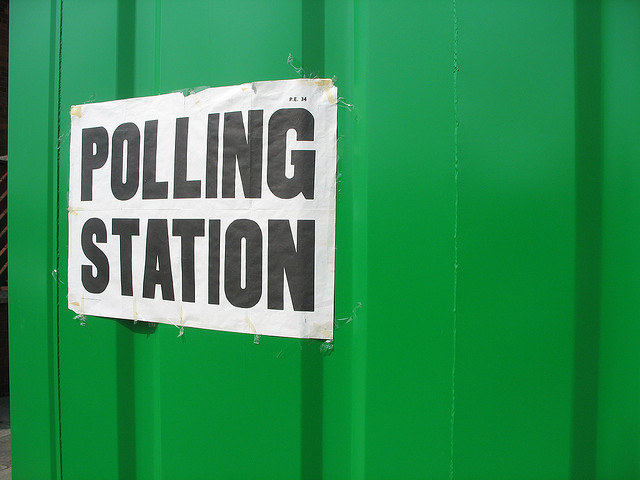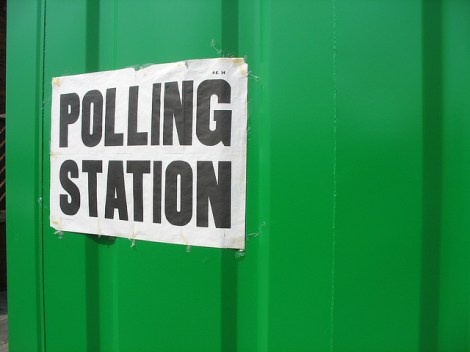Martin Heinrich (D) won election to the U.S. Senate from New Mexico last Tuesday, defeating his opponent, Heather Wilson (R), by more than five percentage points. (Here’s a review of all of the Senate results.)
The Washington Post suggests a possible reason for the victory:
The environmental community scored a string of successes Tuesday in New Mexico, Montana, Texas and other states, winning seven of eight targeted Senate races and at least three targeted House races. Although plenty of outside groups poured money into these contests, even some representatives of the fossil-fuel industry said that environmentalists had invested their resources wisely in 2012. …
The League of Conservation Voters (LCV) spent more than $14 million this year, more than it had in the past three election cycles combined, and groups including the Sierra Club, National Wildlife Federation Action Fund, Defenders of Wildlife Action Committee, Environment America and Natural Resources Defense Council Action Fund also devoted money and volunteers to key contests.
Or, to put it another way:
“There is evidence that the environmentalists have become a more mature political force,” said Scott H. Segal, who lobbies for utility companies at the firm Bracewell & Giuliani.
NPR has a story about the flip side of the coin.
During the election season, it was pretty common to hear about donors making “investments” in superPACs and other outside groups …
[T]he Sunlight Foundation calculated the return on these investments, at least on the contributions that have been disclosed. They found that a lot of the really big, much lauded superPACs kinda “fell flat on their faces,” [says Bill Allison, editorial director at the Sunlight Foundation].
Conservative super PACs spent hundreds of millions of dollars, most of it unsuccessfully. It’s an example that runs counter to that presented by the environmental groups: heavy investment in political races doesn’t seem to have made much of a dent at all.
So what’s the story? Does investing in races swing the outcome or not? The answer, frustratingly to voters and political groups alike, is: sometimes.
One analyst gave his take on that New Mexico race to the Post:
Political analyst Stuart Rothenberg, who had rated the New Mexico Senate contest as a tossup/tilt Democrat at the start of the summer, questioned whether environmentalists were decisive, given the state’s Democratic leanings.
“I’m not doubting that they did something,” Rothenberg said of environmentalists. “If they hadn’t done anything, I think Wilson still would have lost.”
To Rothenberg’s point: President Obama won the state of New Mexico by an even larger margin than Heinrich. It’s unlikely, then, that environmental ads and contributions are what made up that five-point margin of victory.
In at least one case, heavy green investment was clearly not enough for victory. The Michigan ballot initiative that called for bolstering the use of renewable energy lost badly — despite green groups putting $25 million into the effort. Our David Roberts assessed what that loss means for state-level politics, with the same answer we might draw at a national level: It’s uncertain.
Environmental groups investing in political races and running ads on key green topics can raise public awareness of core issues and can, in close races, have an effect. The problem is that it’s hard to predict when you’ll succeed and when you won’t, particularly in races where the electorate heavily favors one side or the other. Often, advocacy organizations assume that even in less-close contests, their strategies are what made the difference, which can skew future political strategizing. There are few more powerful mantras in the heavily superstitious world of political campaigning than, “It worked before!”
About the only thing that can be said with certainty after last Tuesday is this: A big, diverse turnout of voters delivered a number of victories to Democrats. And we can probably say this, too: In Montana, where Sen. Jon Tester (D) was reelected by 19,000 votes in a state that went heavily for Mitt Romney, the efforts of environmental groups got some credit.
Less than three hours after Tester was declared the winner in Montana on Wednesday, LCV President Gene Karpinski received a call from the now two-term senator, thanking him for environmentalists’ support.
It’s often hard to tell when a race will turn out to be as close as Tester’s. Smart politics means taking a shot at races like Heinrich’s, too. This week has been replete with groups and individuals taking credit and blame for outcomes at every level of politics — but as with every election, the truth is much more complex.





